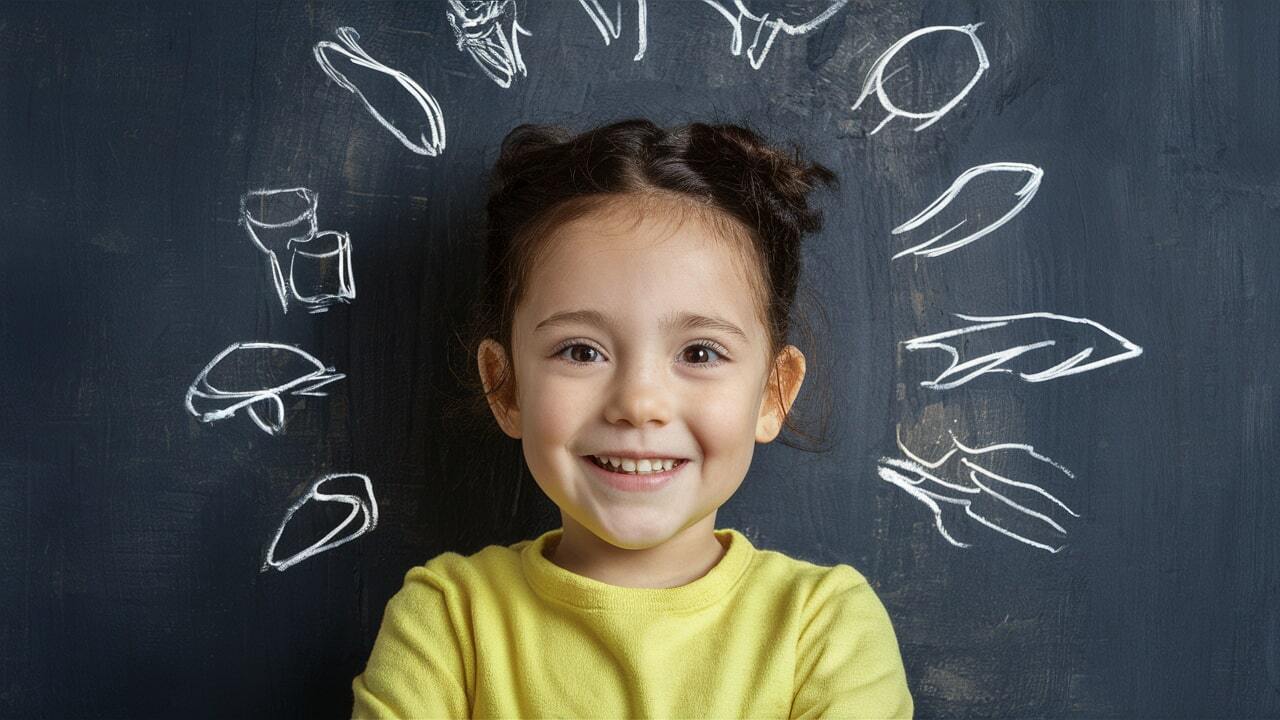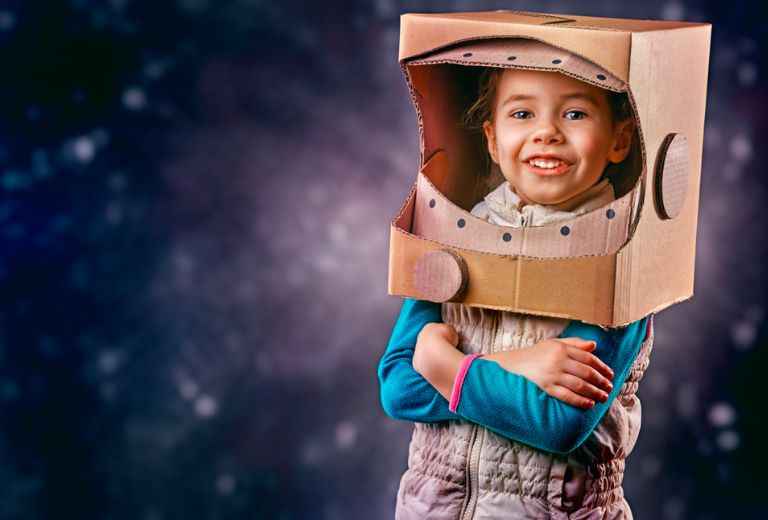
How Creativity Impacts Child Development
The key points from a recent study on the effects of technology on children's learning and development. It outlines the benefits and drawbacks of technology usage, as well as recommendations for parents and educators. The study emphasises the importance of balanced and mindful use of technology in children's lives.

Mejbahul Alam
Writer
PUBLISHED ONJan 31, 2024
How creativity impacts child development
Creativity plays a crucial role in the development of a child's intellect and has a significant impact on their overall growth and learning. It encompasses a wide range of activities, including arts, music, and imaginative play, and is essential for nurturing a child's emotional, cognitive, and social development.
From a young age, children are naturally inclined to be imaginative and curious, and engaging in creative activities allows them to explore and express their thoughts and emotions. Creativity encourages children to think outside the box, problem-solve, and develop their own unique ideas, which are essential skills for their cognitive development. It also fosters a sense of independence and confidence as they learn to trust their own abilities and ideas.

Creative activities promote emotional development by providing children with an outlet for self-expression and a way to process their feelings. Through art, music, and imaginative play, children can learn to communicate their emotions effectively and develop a sense of empathy and understanding towards others. Creativity also plays a crucial role in social development by encouraging collaboration and communication among peers. Creative activities often involve working in groups, sharing ideas, and taking turns, all of which are essential skills for developing positive social relationships.
How Creativity Impacts Child Development
Research has shown that exposure to creative activities at a young age can have a long-lasting impact on a child's development. Children who engage in creative activities are more likely to develop critical thinking skills, problem-solving abilities, and a lifelong love for learning. These skills are essential for success in school and beyond and can have a significant influence on a child's future academic and professional endeavours.
Understanding the significance of child development
Understanding the significance of child development is crucial for ensuring the well-being and future success of every individual. Child development refers to the physical, cognitive, emotional, and social growth that takes place from infancy through adolescence. It encompasses the foundational skills and abilities that shape a child's overall development and future potential. The significance of child development lies in the fact that it sets the stage for lifelong learning, relationships, and overall health and well-being. It plays a critical role in shaping a child's ability to thrive in academic, social, and emotional settings, and lays the groundwork for future success in various aspects of life.
Understanding child development is essential for parents, educators, and caregivers in order to provide the necessary support, guidance, and resources that can help children reach their full potential. By understanding the importance of child development, individuals can effectively contribute to creating a nurturing and supportive environment that fosters healthy growth and development for all children. Furthermore, having a comprehensive understanding of child development can aid in identifying and addressing any developmental challenges or delays, ensuring that every child has the opportunity to thrive and reach their full potential.
Creativity is not merely about artistic expression; it's a cognitive process that involves generating novel ideas and solutions. For children, this ability plays a pivotal role in shaping their personalities and skill sets. Research indicates a strong correlation between creative activities and enhanced cognitive development in children. Creativity goes beyond just expressing art; it is a mental process that includes coming up with new and innovative ideas and solutions. In the case of kids, this skill significantly influences their characters and abilities. Studies show a clear connection between engaging in creative activities and improving cognitive development in children.
Benefits of creativity in early childhood
Creativity in early childhood has numerous benefits that can positively impact a child’s development. Engaging in creative activities such as drawing, painting, and imaginative play allows children to express themselves and explore their emotions and ideas. This fosters cognitive development, problem-solving skills, and helps them develop a sense of independence and self-confidence. Moreover, creative activities stimulate the brain and enhance a child’s ability to think critically and innovate.
It also helps children develop fine motor skills and hand-eye coordination. Creativity in early childhood encourages children to think outside the box, be open-minded, and explore new possibilities. It also fosters social skills as children collaborate and communicate with others while engaging in creative activities. Overall, nurturing creativity in early childhood sets the stage for a lifetime of innovation, self-expression, and joy in learning.
Nurturing creativity in children yields a myriad of benefits, from improved problem-solving skills to heightened self-esteem. This section unravels the positive outcomes of fostering a creative mindset, emphasizing its role in preparing children for future challenges. Encouraging creativity in children brings a wide range of advantages, such as enhanced abilities to solve problems and increased self-confidence. This segment explores the favorable results of promoting a mindset focused on creativity, highlighting its importance in equipping children for upcoming difficulties.
Creativity and cognitive development
Creativity and cognitive development go hand in hand as children explore and interact with the world around them. Engaging in creative activities such as drawing, building, or storytelling helps children to develop their cognitive abilities such as problem-solving, critical thinking, and decision making. These activities challenge their minds and encourage them to think outside the box, leading to the growth of their cognitive development. Creativity also stimulates the brain, promotes imaginative thinking, and enhances a child's ability to process information. By fostering creativity in children, parents and educators can effectively support their cognitive development, enabling them to develop the skills necessary for success in both their academic and personal lives.
The intricate dance between creativity and cognitive development is a fascinating subject. Explore how engaging in creative pursuits stimulates various cognitive functions, contributing to improved memory, attention, and overall cognitive abilities in children. The complex relationship between creativity and cognitive growth is an intriguing topic. Discover how participating in creative activities can enhance different cognitive abilities, leading to better memory, focus, and overall cognitive skills in children.
Practical strategies for creative expression
Practical strategies for creative expression involve setting aside specific time for creative activities, finding inspiration in everyday experiences, and embracing a variety of mediums and techniques. By establishing a regular creative routine, individuals can cultivate a habit of expressing themselves through art, writing, or any other form of creative outlet.
It is also important to seek out new experiences and surroundings to find fresh inspiration, while also experimenting with different tools and methods to expand one's creative skills. Seeking feedback and collaboration with other creatives can provide valuable insights and fuel further exploration. The key to practical strategies for creative expression is to create a conducive environment and mindset for unleashing one's imagination and individuality.
Parents, educators, and caregivers play a pivotal role in fostering creativity. This section provides actionable strategies to create an environment that nurtures and encourages creative thinking in children, offering tips applicable to different age groups. Guardians, instructors, and those who provide care have a crucial part in promoting imagination. This part gives practical methods for establishing a atmosphere that supports and inspires innovative thought in kids, providing advice that can be applied to various age ranges.
Creative learning and Emotional Intelligence
Creative learning and Emotional Intelligence go hand in hand to foster a well-rounded and adaptable individual. Incorporating creative learning in education allows students to explore various forms of expression and problem-solving, which in turn, nurtures their Emotional Intelligence. Through creative learning, individuals are encouraged to think outside the box, develop empathy, and manage their emotions effectively.
These skills are crucial components of Emotional Intelligence, which encompasses self-awareness, self-regulation, social skills, empathy, and motivation. By integrating creative learning activities into the curriculum, educators can help students develop the necessary Emotional Intelligence to navigate the complexities of the modern world with resilience and understanding.
Uncover the profound connection between creativity and emotional intelligence. Learn how creative expression acts as a channel for emotional release and development, contributing to a child's overall emotional well-being. Discover the deep relationship between creativity and emotional intelligence. Understand how being creative provides an outlet for emotions and growth, which helps improve a child's emotional health.
The impact of creativity on child development is undeniable. By understanding and actively promoting creativity, we pave the way for a future generation equipped with not only academic prowess but also the innovative thinking necessary to navigate an ever-evolving world. Let's embrace creativity as a cornerstone of holistic child development, ensuring that every child has the opportunity to unleash their full potential. There is no doubt that creativity has a significant influence on the development of children. By recognizing and encouraging creativity, we are preparing the next generation to not only excel academically but also to think innovatively in order to adapt to a constantly changing world. Let's embrace creativity as a fundamental aspect of comprehensive child development, guaranteeing that every child has the chance to fully unleash their capabilities.
Share
More Blog Articles

Jan 30, 2024
The Transformative Influence Of Pretend Play in Childhood Development
Pretend play is a critical component of childhood development, allowing children to explore different roles, emotions, and situations in a safe and imaginary environment. Through pretend play, children develop important cognitive, social, and emotional skills, such as problem-solving, empathy, and creativity. This type of play also helps children make sense of the world around them and practice important social skills, ultimately contributing to their overall development and well-being.
READ MORE

Jan 29, 2024
The Power of Physical Play
"The Power of Physical Play" explores the importance of physical activity in the development of children. The content discusses how engaging in play helps children learn, develop motor skills, and build social relationships. It also emphasises the role of physical play in enhancing cognitive abilities and promoting overall well-being. We provide practical tips and activities for parents, educators, and caregivers to incorporate more physical play into children's daily routines.
READ MORE
